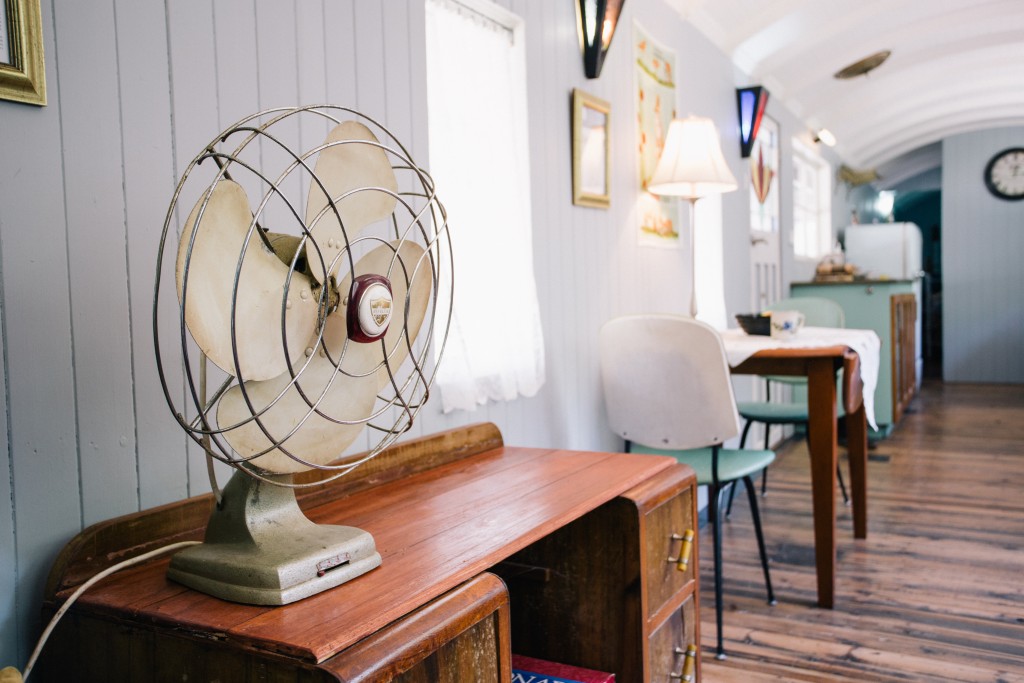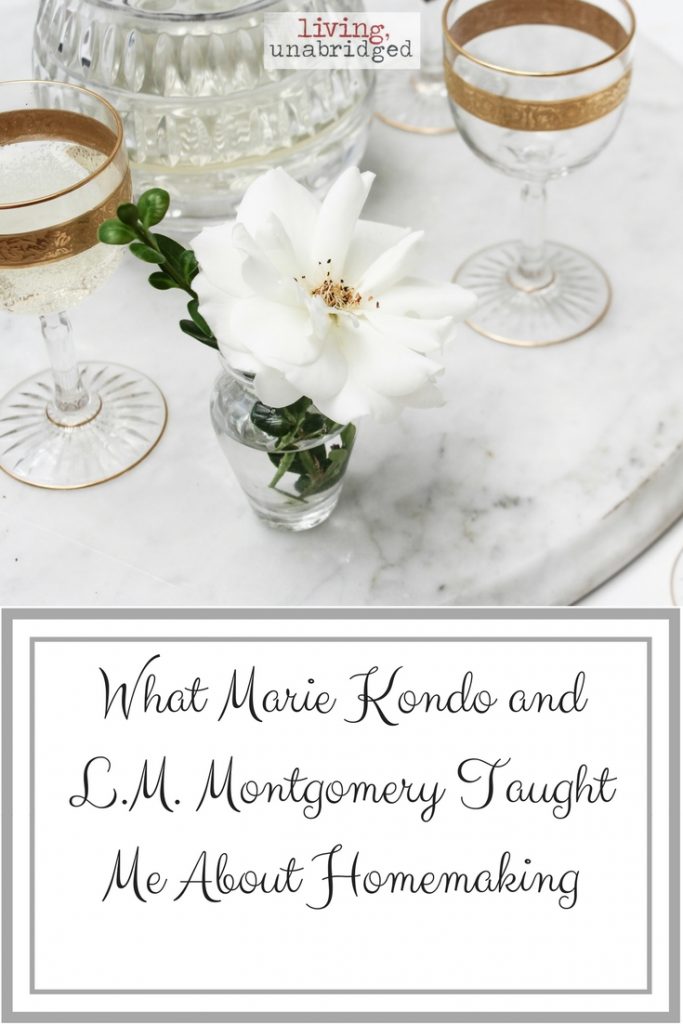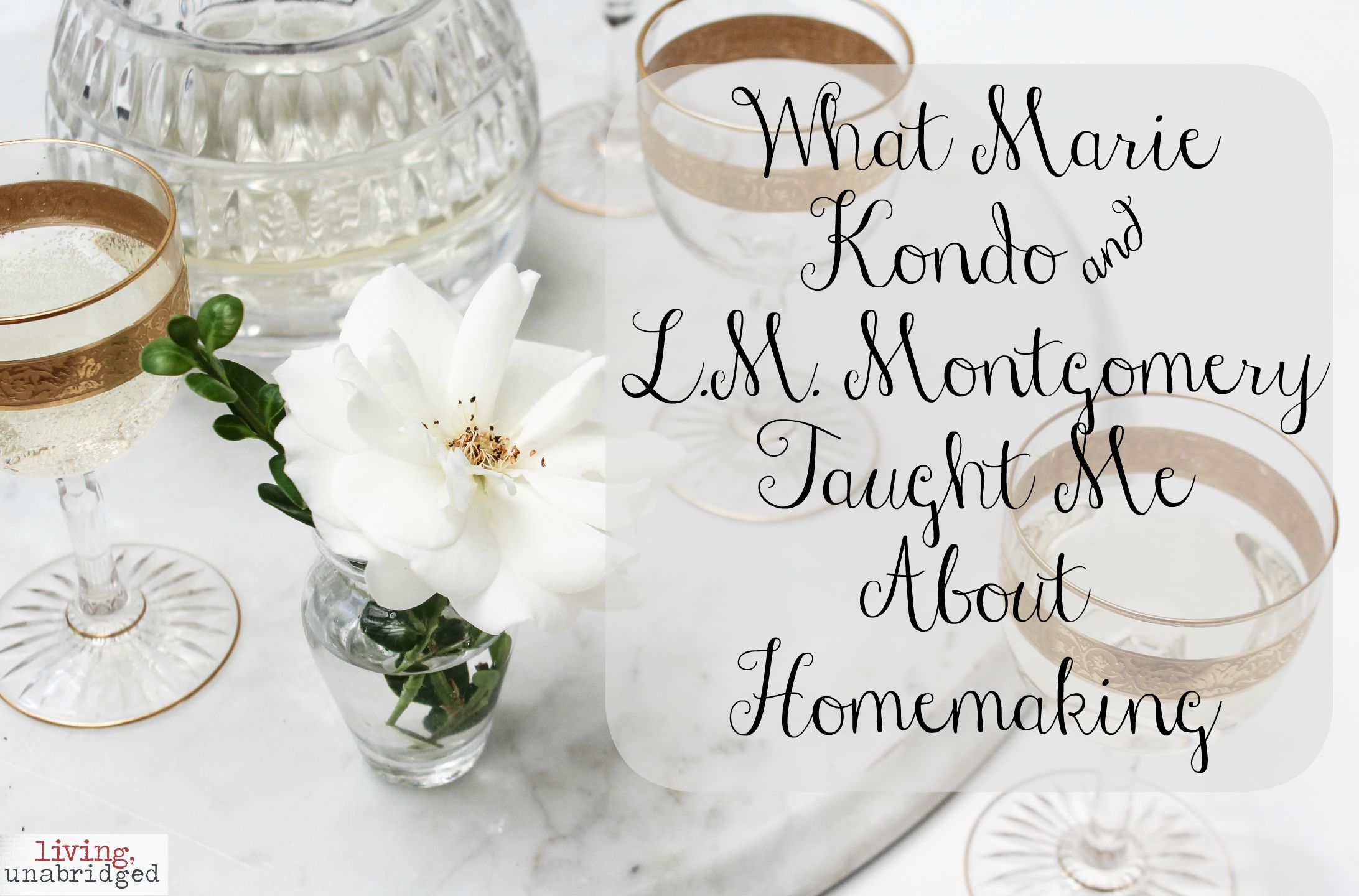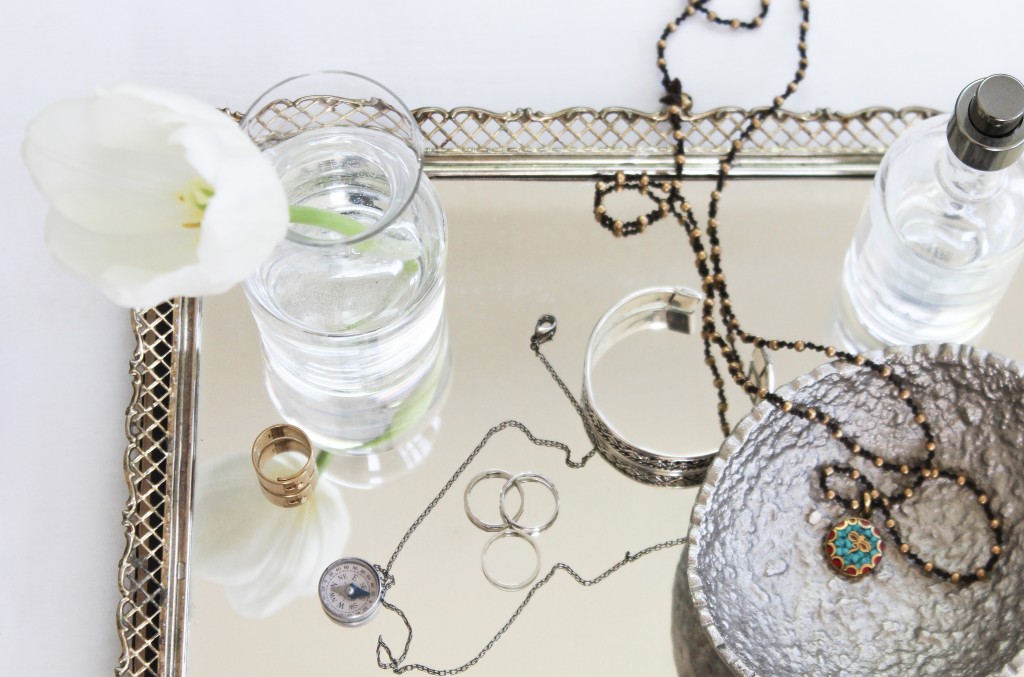One of the criticisms I've seen of The Life-Changing Magic of Tidying Up: The Japanese Art of Decluttering and Organizingby Marie Kondo is how absurd it sounds when she talks about homes and objects as if they have feelings (or souls). Her ritual of addressing a house before she begins to help a client has been mocked and parodied.
Now, let me address this first: I do not believe inanimate objects have souls or spirits. I'm a Christian so I don't follow principles of Shintoism or even Feng Shui.
At first when I read these criticisms, I felt a little worried. After all, my children have been known to greet our house when we come home from a long trip. (Imagine our van pulling into our garage while my children are yelling, "Hello, House!")
Should I be worried that they're attributing a soul to our house? Maybe. But (you knew that was coming, right?), I'm also a life-long reader and I've noticed something in older stories and British literature: houses used to have names. (In the case of books set in Britain, they often still have names.)
Naming a house gives it a charm that our modern address systems do not.
Think about all those L.M. Montgomery books. You have Green Gables, a house that Anne loves passionately but also "Anne's House of Dreams", "Ingleside", "Windy Poplars", or "Lone Willow Farm" (where Diana lives as a married woman). Other books by Montgomery introduce places like "New Moon", "Silver Bush", "Cloud of Spruce", or "Lantern Hill".
These aren't just places in these stories: they are characters in their own right. The other characters talk about them (and sometimes to them) as if they have feelings or, at the very least, value.
Giving something a name gives it value.
Kondo says:
In addition to the physical value of things, there are three other factors that add value to our belongings: function, information, and emotional attachment. When the element of rarity is added, the difficulty in choosing what to discard multiplies.
In Montgomery's case, it isn't just houses that merit names.
Plants (remember Anne's beloved "Bonny"?), treasured decor (like the fireplace china dogs "Gog and Magog"), or places ("The Lake of Shining Waters", "The White Way of Delight", etc.) also receive names and personalities.
You can see examples of this in other books from less materialistic times too.
Think about the "Little House" books:
The reason why people drive thousands of miles to Rocky Ridge (another house name!) in Missouri is to see the treasures that Laura Ingalls Wilder described in her books.
People wonder what happened to the china shepherdess or Pa's fiddle. These are inanimate objects that have value to far more than the family that initially owned them because of the way Wilder described them in her books.
Think about Scarlett O'Hara willing to do almost anything to save Tara. (I'm not saying she's a good example for anything else, of course.)
The home and land have a pull for her that defies easy explanation. In Kate Morton's The Distant Hours the decaying castle is a character that continually pulls the Blythe family. Downton Abbey, the amazingly popular TV show, is about a house (really, Highclere Castle) as much as the family that lives there.
One of my favorite insights from Kondo came near the end of the book when she pointed out:
Human beings can only truly cherish a limited number of things at one time. As I am both lazy and forgetful, I can't take proper care of too many things. That is why I want to cherish properly the things I love...
I can identify with that statement. I fight laziness too. I have six children, one husband, and a cat. Even if we had a minimal number of possessions for each of us (we don't!), that would still be a lot of things to care about and maintain. Which is why an earlier Kondo quote makes a lot of sense:
We should be choosing what we want to keep, not what we want to get rid of.
Why does this matter?
We've lost something in our materialistic age. We have so many things we can't possibly name or love them all.
We don't cherish our homes: we simply exist in them, all the while dreaming of our "dream home" that maybe we'll get someday.
Maybe it's time to stop dreaming.
Let's name our homes.
Cherish them.
Pare our possessions down to things that have meaning to us (even if that's still a lot more items than Marie Kondo would like. After all, she didn't have a lot of practical advice for large families).
Let's pass on our abundance to others who may love it or need it, and therefore appreciate it, more.

I don't think we need to thank our houses or possessions the way Marie Kondo does (although I don't think there's a huge problem with it, either). But I do think we need to thank the Giver of All Good Things. Many of us in the West have so much, we ought to be the most thankful, grateful people on the planet. But, we're not.
What if we're not thankful BECAUSE we have too much stuff?
Maybe it's time to find out.
And I still won't be too worried if we leave on our next trip and my children tell our house, "We'll be back soon."
Have you read The Life-Changing Magic of Tidying Up: The Japanese Art of Decluttering and Organizing
? What did you think about the book or the method of "tidying" that Kondo describes?
And where did you learn about homemaking?

Pictures in this post courtesy of Death to the Stock Photo.










I like this post very much. My daughter named my parent's house. It tickled my mom so much. She loved it. When I was a kid I named everything. I was very attached to everything including trees, bushes, the garden, my stuffed animals. In fact, even though I don't name things anymore, I still feel that they have personality. As a Christian, this doesn't mesh with my beliefs, but it is there anyway.
Since we are moving to our new house, I have been donating a lot of stuff. This is simultaneously freeing and difficult for me. I have been given many good things. Our devotions this week focused on storing up our treasures in heaven which was a timely reminder for me. Isn't it funny how that happens?
I'm extremely sentimental about objects or letters / cards, especially from people who are no longer with us on earth. (And totally agree about the personality of things concept.)
I guess what this book helped me realize is that not ALL of the things I've saved or hang onto by default, have the same degree of preciousness (at the risk of sounding like Gollum) to me. So it's OK to let go of some, in order to cherish what I keep. (And what I keep is going to be a lot larger stack than what Marie Kondo would keep.)
Anyway, I get that the book is quirky But I appreciate how it made me think.
Funny story. I did not discuss this with my husband, but he named our new house. Haha! It just came out of him, and it is gonna stick. So funny.
I love it!
I love - love - LOVED the Life Changing Magic. It IS life changing! The seemingly slight change of focusing on keeping what gives you joy is just amazing. That's the only rule! Finding the difference between "do I loooove it or do I just like it" has been a game changer for me.
Very thought provoking for me. My current housekeeping habits are horrible. The clutter is overwhelming. But I have recently come to realize how much I have grown to despise our current house. I am not thankful, shamefully. I think I was when we moved in 3 years ago, but the new and adventure have worn off and the difficult unappealing things are all I see. I am certain my attitude toward it is related to the current state we keep it in. Good post. Thanks for the thoughts.